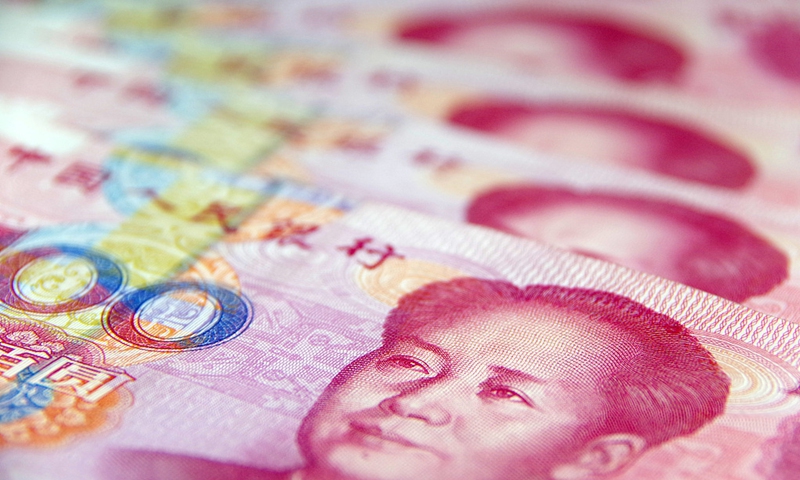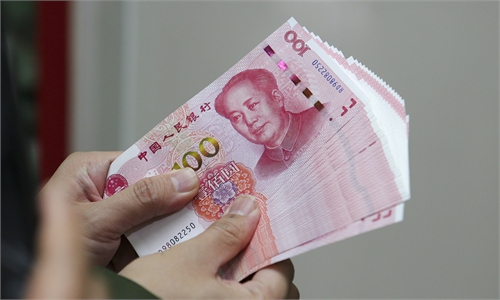
Chinese yuan Photo:VCG
Use of the yuan jumped to 2.37 percent of global payments in November, up from 2.13 percent in October, remaining the fifth most active currency, according to data from global payment services provider Society for Worldwide Interbank Financial Telecommunication (SWIFT) on Wednesday.
It mirrors the steady progress in the yuan's internationalization, the growing appeal of the yuan in global payments and settlements, and bullish views on the long-term development momentum of China's economy, analysts said.
In November, the yuan remained the fifth most-used currency in the world, behind the US dollar, the euro and the pound, and was just behind the yen, which was No.4.
The increased share of the yuan in global payments was due to the rising proportion of yuan settlements in foreign trade, a stable exchange rate among major international currencies, and improved cross-border payment and settlement infrastructure, Zhou Maohua, a macroeconomic analyst at Everbright Bank, told the Global Times on Thursday.
The yen is losing popularity as a currency for international payments. The proportion of payments made using the Japanese currency fell to 2.54 percent in November, down from 2.95 percent in October, the lowest level since August 2014.
"The recent decline in the proportion of the yen in international payments is related to the recent sharp fluctuations of the yen exchange rate and the uncertainty of the policy outlook of the Bank of Japan," Zhou said.
In a move to correct the depreciation of the yen and narrow interest rate differentials with the US and Europe, the Bank of Japan (BOJ) on Tuesday said the yield on the 10-year Japanese government bond could rise as high as 0.5 percent from a previous cap of 0.25 percent, ending a long period in which it was the only major developed-nation central bank not to increase rates.
"This measure is not a rate hike," BOJ Governor Haruhiko Kuroda said, noting that the change aims to enhance the sustainability of the monetary policy framework.
In the volatile environment of the global foreign exchange market, the appeal of the yuan is expected to continue to grow, Zhou said.
Thanks to the opening up of China's financial market, the yuan has played a bigger role in investment and financing. The share of the yuan in the IMF's Special Drawing Rights basket rose from 10.92 percent in 2016 to 12.28 percent in May 2022, reflecting a growing recognition worldwide of the improvement in the use of the yuan.


